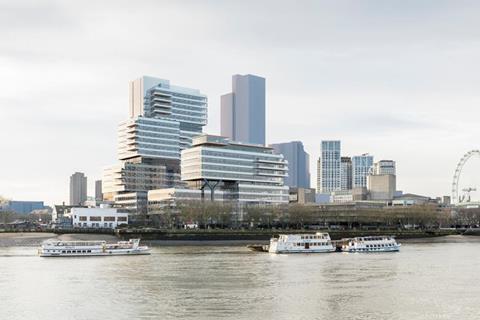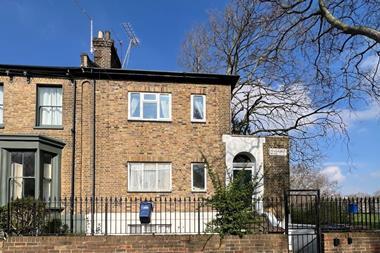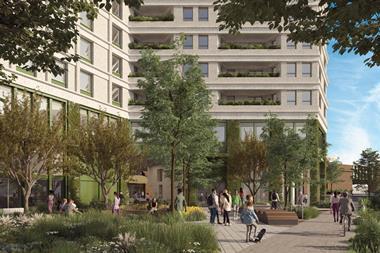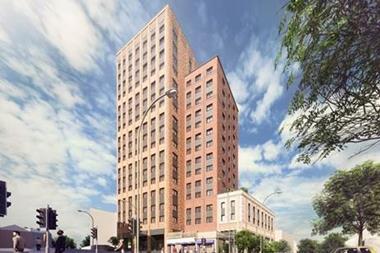The long-awaited and much-delayed decision on the future of London’s South Bank will have triggered gasps of relief as much as surprise, given how many must surely have been holding their breath for the outcome.

The nod from the secretary of state means that developers CO-RE and Mitsubishi Estate can finally progress their £700m project, a little over four years since they acquired the site and 18 months after plans were called in.
I imagine principal contractor Lendlease will be keen to get moving on its 36-month build programme, having won the bid almost two years ago when building costs were significantly lower.
But it must wait in line behind McGee, the contractor set to deconstruct the old ITV Studios. That complex process of demolition and ground preparation is expected to take just over a year.
Beyond those directly involved, including at architects Make and various consultancies, there will be many more in the property sector relieved to see which way the wind is blowing through Michael Gove’s mind.
Proponents of other ambitious schemes will not take too much comfort from Gove’s ruling
The South Bank ruling comes in the wake of Gove’s earlier decision to block redevelopment of the M&S at Marble Arch, which triggered severe cases of the jitters around the industry.
Gove has been a vocal proponent of ‘beauty’ in planning considerations, and put substantial weight on heritage and carbon emissions in his decision to halt the M&S scheme. In the light of the looming general election, he had appeared much more of a blocker than a builder. That concern will have eased following his blessing for the riverside scheme.

But proponents of other ambitious schemes will not take too much comfort from his ruling.
The letter granting permission for the project is not short of outright criticism. “Overall, the secretary of state disagrees with the Inspector’s conclusion that the proposal would provide a positive contribution to the townscape of the South Bank,” the letter notes. It adds: “Unlike the Inspector, [Gove] does not consider that the proposed palette of materials and the aesthetic appearance of the building is appropriate for what is a very prominent and sensitive site. He disagrees with the Inspector that an attractive development would be delivered.”
And while Gove welcomes public realm improvements to the riverfront, the letter also expresses “concerns about the proposed scale and massing” of the buildings and sees at least some “harm to the character and appearance” of the South Bank conservation area, as well as “harm to the setting and significance” of prominent listed buildings including the National Theatre, IBM Building and Somerset House.
On the upside, Gove “agrees with the Inspector that the proposal would deliver high sustainability standards and demonstrates a policy-compliant approach to meeting the circular economy objectives”. He also welcomes the potential economic boost of new employment.
The letter concludes: “The public benefits of the proposal do outweigh the harm to designated heritage assets.”
A relief, in other words, that Gove can still manage to approve a scheme even if he doesn’t think it’s actually beautiful.
That news is clearly welcome, although any certainty it brings is unlikely to last beyond the general election.





























No comments yet